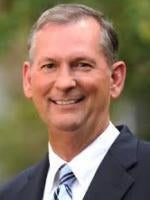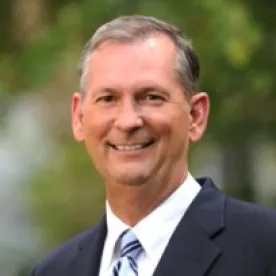At Meadowlawn Elementary in the 1960s, my West Michigan friends and I would boast about things that made us "better" than each other. It was the golden age of Superman comics and, while I didn't have super strength or x-ray vision, I often boasted that I was the tallest kid in my class. When my height failed to impress fellow third graders, I would boast on the playground that I was "part Indian." Evidently, I had a great great grandmother on my father's side of the family whom the eight-year-old me described as "either all or one-half" Native American. I also knew that the family's tribe was either Potawatomie or Blackfoot.
Years later, at East Kentwood High, friends would derisively ask why I wasn't even sure which tribe I was from. Which brings me to my grandfather's funeral.
Grandpa Pete died in 1983 and, at a reception following his funeral in Ohio, I spoke with his brother Donny, then in his mid-80s. At some point I asked Donny why the family didn't make a bigger deal over our ancestors, after also telling him that, as a kid, I thought having a Native American heritage was pretty cool and had always wished that I knew more about it.
My grand-uncle's answer went like this: "Well, Billy, you might think that being an Indian was a good thing. But in the 1920s and 1930s, when my brother and I were young, it was something you didn't talk about. You didn't talk about it if you wanted a job, new friends, or that sort of thing."
Using slightly saltier terms, Donny said he faced negative stereotypes and prejudices that often embarrassed him. Our exchange took 45 seconds because, to Donny, it was that simple.
After the funeral, I drove back to Michigan and returned to practice as a young lawyer. My "after work" hobbies included watching football played by the team from the school where I got my law degree. They are known as "The Fighting Irish of Notre Dame."
Given my background and the things I thought as a child, I think that I would have found little wrong with a football team choosing to call itself the Washington Redskins. But there are people in the U.S. Patent Office who feel differently, which is why the U.S. Patent and Trademark Office's Trademark Trial and Appeal Board recently granted a petition brought by five Native Americans to cancel six federal trademark registrations of the National Football League's Washington franchise.
All six of the challenged registrations include the word REDSKINS (or, in one instance, REDSKINETTES). The Board's administrative law judges, in a 2-1 decision, found that the marks covered by the registrations were disparaging.
The team now has the right to appeal the Board's decision. If the appeal is claimed in a timely manner, the six registrations will remain in force until the appeal process is completed.
The Board's 177 page June 18 decision did not deal with the team's right to use the underlying marks. Thus, even if ultimately upheld on appeal, the decision will not force the team to stop using the marks. It will, however, make it more difficult for the team to stop others from using identical or confusingly similar marks, such that the team could no longer rely on the cancelled federal registrations to maintain exclusivity. Instead, Washington's team would be forced to rely on state registrations or on unregistered rights, sometimes called "common law" rights.
One bottom line is that, if the team is unsuccessful in stopping others from using identical or similar marks, its licensing income will likely be damaged.
When news of the Patent Office's decision was announced, I thought briefly about my grandfather and his brother who – again – were descendants of Native Americans, but often kept that a secret. I also took note of conflicting opinions shared by legal observers and others.
Much of the initial reaction to the Board's decision features predictable name-calling by ideological camps who have often simply repeated old arguments on the Redskin controversy and similar debates.
As to opponents of the decision, I note those who argue that it is one more example of the government's politically correct attempts to intrude in the average Joe's life. "The team has always had that name. I don't care what the government thinks. Show me someone who really cares about this," they say, perhaps ignoring the fact that the challenges to the trademarks, which triggered the Patent Office's effort, were filed by a U.S. citizen named Amanda Blackhorse and four other average Joes.
Those cheering the decision include U.S. Citizens who believe that the challenged terms are too often used to demean people and thus are unworthy of governmental protection that would allow an organization to profit from such activity by preserving its licensing rights.
Finally, there was the guy who noted that Eastern Michigan University changed the name of its teams from "Hurons" to "Eagles" a few years ago. The fellow then asked whether it would now be appropriate for the citizens of Michigan -- "The Great Lakes State" -- to choose a new name for Lake Huron.
All of the above provides a few more examples of the way that law shapes our society. Or is it society that shapes our laws? Maybe it's both.
Either way, here is hoping that the debate over our nation's Capital's football team may eventually provide an example of the good that can result when the law is more than a list of hard, fast, and never changing rules.
If all of the name-calling stops, we may see reasoned analysis, debate, and a more vital balance between both the nuts and bolts "you gotta memorize the law because it will seldom change" side of the law and the evolving will of those who recognize that society and society's needs change and that the exercise of laws can play a vital role in the improvement of lives, both ours and those of others.




 />i
/>i

